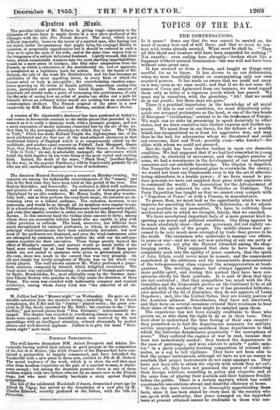A version of Mr. Ainsworth's llookwood has been produced at
Astley's; and comes in favourable contrast to the battle-pieces that preceded it, in- asmuch as it is really a dramatic work, with a dramatic purpose, and not a mere succession of smoky tableaux connected less by the art of the au- thor than by the newspaper chronicles to which they refer. The "Ride to York," which has made Richard Turpin the highwayman one of the most celebrated and we fear one of the most admired characters in that traditional history of England which is so conspicuously edited by the multitude, and confers equal renown on Falstaff, Jack Sheppard, Queen Bess, Guy Fawkes, Mary of Smithfield, and Mary Queen of Scots,—this "Ride to York," we say, is admirably managed, the adventures which befall the bold fugitive on his route being of the most varied and exciting kind. Indeed, the death of the mare, "Black Bess," (another figure, by the way, in the popular Pantheon,) will be found really pathetic by al who are not casehardened against the woes of melodrame.


































 Previous page
Previous page